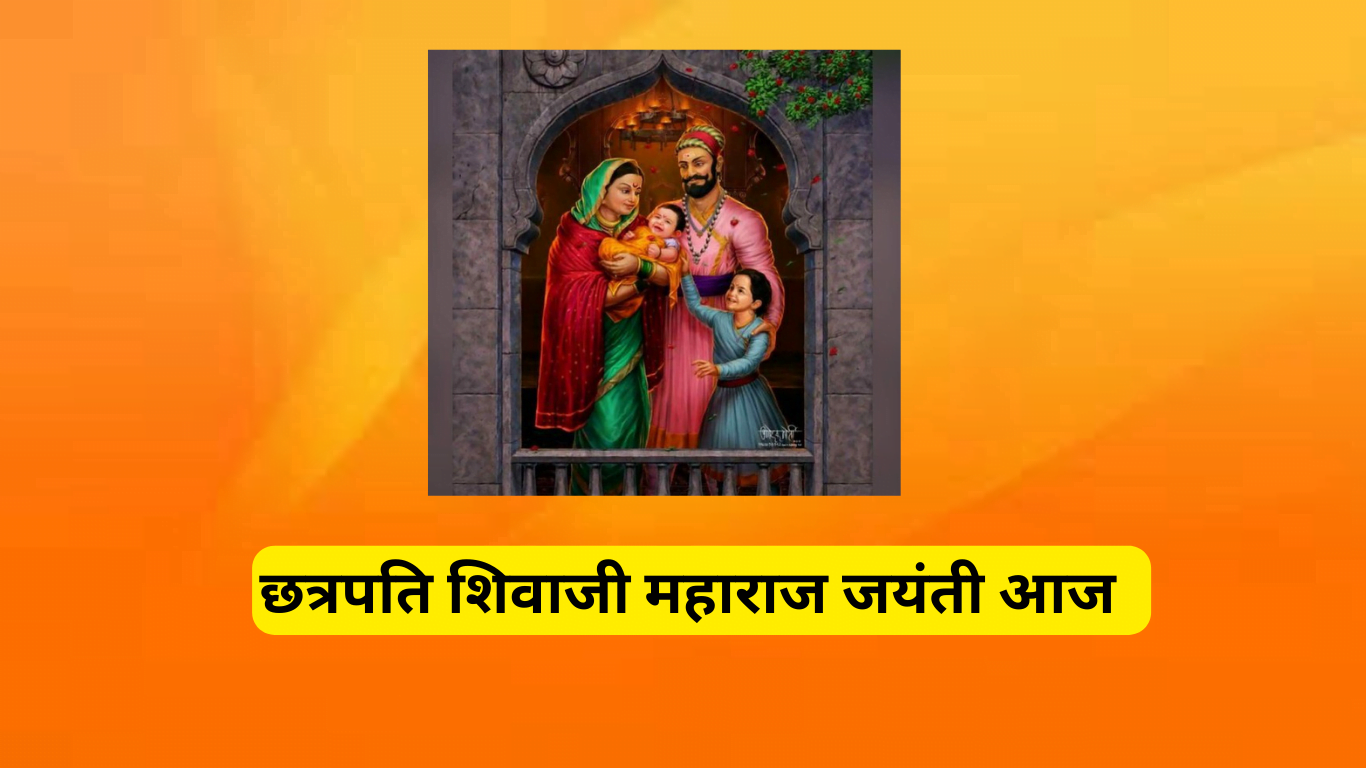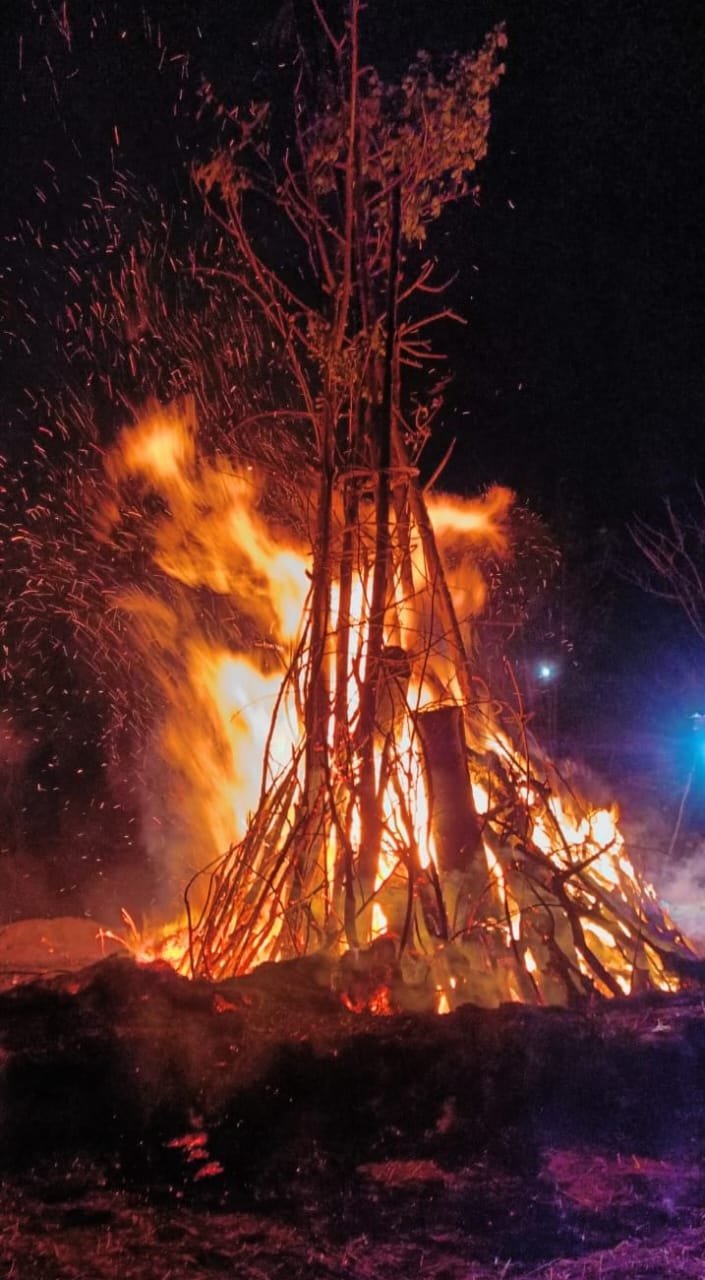
Title: Celebrating the Legacy of Chhatrapati Shivaji Maharaj: A Tribute to the Great Warrior King
Introduction:
In the rich tapestry of Indian history, few figures stand as tall and revered as Chhatrapati Shivaji Maharaj. Born on February 19, 1630, Shivaji Maharaj’s legacy transcends time and borders, inspiring generations with his indomitable spirit, unwavering courage, and visionary leadership. As we commemorate his 394th birth anniversary, it’s an opportune moment to delve into the life and times of this iconic warrior king, whose valorous deeds continue to resonate across the length and breadth of our nation.

Early Life and Rise to Power:
Born into the illustrious Maratha family, Shivaji Maharaj inherited a legacy steeped in courage and resilience. From a young age, he exhibited traits of leadership and determination, foreshadowing the remarkable journey that lay ahead. At the tender age of 15, he embarked on his first military expedition, laying the foundation for a storied career marked by triumphs and conquests.
Shivaji Maharaj’s ascent to power was characterized by audacity and strategic brilliance. At 16, he seized the formidable Torna Fort, signaling his intent to challenge the dominance of the Mughal Empire in the region. With each conquest, his influence grew, as did his reputation as a formidable adversary to the Mughal forces.

The Forts of Raigad and Kondana:
Among Shivaji Maharaj’s most renowned victories were the conquests of the Raigad and Kondana forts. At the age of 17, he demonstrated his military prowess by capturing these strategically significant strongholds, further solidifying his control over the region. These conquests not only expanded his territory but also served as symbols of defiance against Mughal hegemony.
The Raigad Fort, perched majestically atop a hill, became the seat of Shivaji Maharaj’s power and governance. From this impregnable fortress, he orchestrated his campaigns, implemented administrative reforms, and envisioned a sovereign Maratha Empire that would stand the test of time. The Kondana Fort, with its rugged terrain and imposing ramparts, bore witness to Shivaji Maharaj’s strategic genius and unwavering resolve in the face of adversity.
The Maratha Empire:
Under Shivaji Maharaj’s visionary leadership, the Maratha Empire emerged as a formidable force in Indian politics and warfare. His military acumen, coupled with his deep understanding of guerrilla tactics and fortifications, enabled the Marathas to challenge the might of the Mughal Empire and carve out a distinct identity in the annals of history.
The ethos of the Maratha Empire, shaped by Shivaji Maharaj’s principles of justice, equality, and religious tolerance, resonated with people from all walks of life. His administration prioritized the welfare of his subjects, fostering a sense of belonging and pride among the Maratha populace. Through his astute diplomacy and strategic alliances, Shivaji Maharaj expanded his influence across the Deccan plateau, laying the groundwork for a unified Maratha realm that spanned vast territories.
Legacy and Impact:
Shivaji Maharaj’s legacy extends far beyond the realms of military conquests and territorial expansion. He embodied the spirit of resilience and self-determination, inspiring countless individuals to rise against oppression and tyranny. His valorous deeds continue to serve as a beacon of hope for those striving for justice and freedom.
In contemporary India, Shivaji Maharaj remains a revered figure, revered for his contributions to the cultural, social, and political fabric of the nation. His name evokes a sense of pride and admiration among millions of Indians, transcending regional and linguistic boundaries. From literature to cinema, his life has been immortalized in various art forms, ensuring that future generations remain cognizant of his legacy and teachings.

Celebrating Chhatrapati Shivaji Jayanti:
As we commemorate the 394th birth anniversary of Chhatrapati Shivaji Maharaj, it is incumbent upon us to reflect on his life and legacy with reverence and gratitude. His exemplary leadership and unwavering commitment to the cause of justice continue to inspire us to strive for a better tomorrow.
On this auspicious occasion, let us honor Shivaji Maharaj’s memory by emulating his virtues of courage, integrity, and compassion. Let us reaffirm our commitment to upholding the values of freedom, equality, and fraternity, which formed the cornerstone of his vision for a just and equitable society.
Conclusion:
Chhatrapati Shivaji Maharaj’s life is a testament to the power of resilience, determination, and leadership. His indomitable spirit and unwavering resolve in the face of adversity continue to inspire generations, transcending the boundaries of time and space. As we pay tribute to his memory on his 394th birth anniversary, let us draw inspiration from his exemplary life and strive to build a world that honors his legacy of courage, justice, and righteousness. Jai Shivaji!

History of Shivaji Maharaj :
Shivaji Maharaj, also known as Chhatrapati Shivaji Maharaj, was a towering figure in Indian history, particularly revered in the state of Maharashtra. Born on February 19, 1630, in the fort of Shivneri in present-day Maharashtra, Shivaji carved out an enduring legacy as a brilliant military strategist, a skilled administrator, and a champion of Hindu resurgence against the Mughal Empire.
Shivaji was born into the Bhonsle clan, which belonged to the Maratha warrior community. His father, Shahaji Bhonsle, served under the Deccan Sultanates, primarily the Adil Shahi Sultanate of Bijapur. However, Shivaji was raised primarily by his mother, Jijabai, who instilled in him a sense of pride in his heritage and a deep respect for Hindu culture and traditions.
From a young age, Shivaji showed remarkable leadership qualities and military acumen. He began his military campaigns in his teens, capturing the Torna Fort at the age of 16. This marked the beginning of his quest to establish an independent Maratha kingdom in the Deccan region, which was then fragmented and dominated by various Muslim kingdoms, particularly the Adil Shahi Sultanate and the Mughal Empire.
Shivaji’s military campaigns were characterized by his innovative guerrilla tactics, strategic alliances, and his ability to inspire loyalty among his followers. He established a network of forts across the Sahyadri mountain range, known as the “Ghats,” which served as the backbone of his kingdom’s defense and administration.
One of Shivaji’s most audacious acts was the capture of the Torna Fort in 1646, which he followed up with the capture of other forts in the region, gradually expanding his territory. However, his ambitions brought him into conflict with the Adil Shahi Sultanate and later the Mughal Empire, particularly under the reign of Emperor Aurangzeb.
Despite facing formidable enemies, Shivaji continued to defy odds and expand his kingdom. He employed a combination of military prowess, diplomatic maneuvering, and astute political alliances to consolidate his power. One of his most famous exploits was the daring raid on the Mughal port of Surat in 1664, which not only bolstered his reputation but also earned him valuable loot and resources.
In 1674, Shivaji was crowned as the Chhatrapati, or paramount sovereign, of the Maratha Kingdom, marking the formal establishment of his independent state. His coronation ceremony at the Raigad Fort was a grand affair, attended by nobles, commanders, and religious leaders from across the region. The title of Chhatrapati signified his authority over both his subjects and his vassals, as well as his status as a defender of the Hindu faith.
Shivaji’s rule was characterized by administrative reforms aimed at promoting justice, efficient governance, and economic prosperity. He established a decentralized administrative system, with local councils known as “Ashtapradhan” (Council of Eight Ministers) responsible for various aspects of governance. He also implemented revenue reforms to alleviate the burden on the peasantry and foster agricultural growth.
Moreover, Shivaji was a patron of arts, culture, and architecture. He encouraged the construction of temples, forts, and other infrastructure projects, many of which still stand as symbols of his legacy. His vision of a strong and prosperous Maratha kingdom inspired generations of leaders and freedom fighters in India’s struggle against foreign domination.
Shivaji Maharaj passed away on April 3, 1680, leaving behind a rich legacy that continues to resonate in the hearts of millions of Indians. His life and achievements have been celebrated in numerous works of literature, art, and cinema, solidifying his status as a cultural icon and a symbol of resistance against tyranny. Today, Shivaji Maharaj is remembered not only as a great warrior-king but also as a visionary leader who laid the foundation for the emergence of the Maratha Empire and the broader Indian independence movement.




